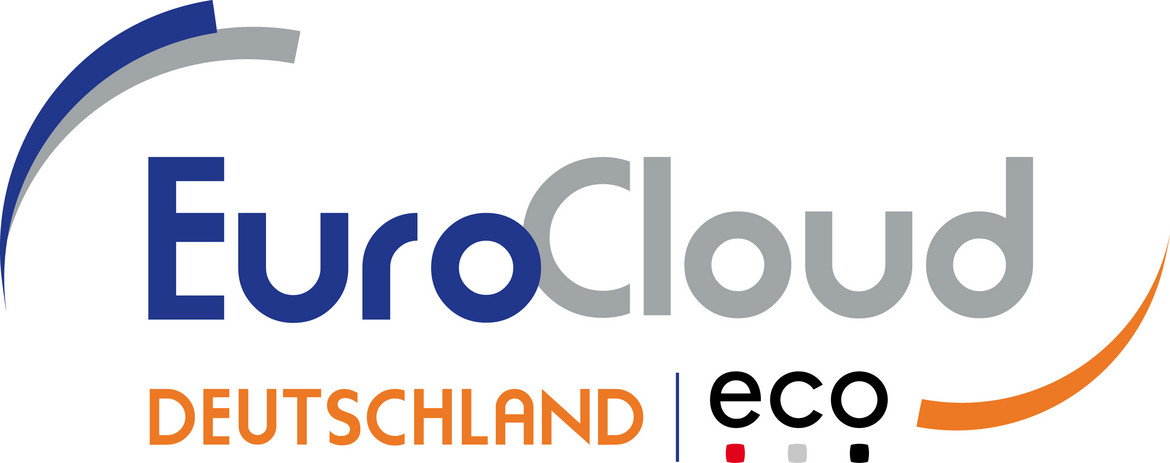Finding Skilled Workers via New Work Strategies in the Cloud Native Market
New Work strategies in the cloud native market help to find and retain skilled workers, as affirmed in Nils Klute’s interview with EuroCloud Germany members.

©AndreyPopov | istockphoto.com
If talents are missing, businesses tend to fall by the wayside. How to find skilled workers and retain them in the long term. And which New Work strategies prove their worth in the cloud native market. An interview with Dr. Alexandra Heinzelmann from HALLO ARBEIT (Hello Work), Thomas Mitzka from Bechtle Clouds, and Fabian Sokoll from globaldatanet.

Dr. Alexandra Heinzelmann
New Work Expert and Manager at Hallo Arbeit

Thomas Mitzka
Head of Partner & Portfolio Management at Bechtle Clouds

Fabian Sokoll
HR Specialist at globaldatanet
Nils Klute: Alexandra, at HALLO ARBEIT, you give companies advice on New Work issues. How relevant is the topic when it comes to the shortage of skilled workers?
Dr. Alexandra Heinzelmann: Highly relevant! IT companies are particularly interested in New Work. This topic is not just a passing trend. Today’s teams organize themselves virtually, have to be managed on a remote basis, and need suitable workplace concepts.
Nils: Thomas, you head the partner and portfolio management at Bechtle Clouds. How important are suitable office concepts for you?
Thomas Mitzka: Whether it’s to do with flexible working hours or the option of working from home: these kinds of offers are crucial for successfully attracting new employees and retaining existing ones. For employees, these are key benefits that support them in achieving a healthy work-life balance. As a company, we gain advantages through such approaches, as we get to reach a broader target group of people who don’t have to live in the immediate vicinity of our locations.
Nils: Fabian, you are a HR specialist at globaldatanet. As a cloud native provider, how does your company score points with the sought-after talents?
Fabian Sokoll: We all spend a good third of our time at the workplace during the week. For us, what’s essential is that employees feel comfortable. From remote work, to office equipment, right through to corporate culture: based on these, we aim to create an environment that is value-oriented, appreciative, and at the same time flexible enough to meet the needs of each individual.
Nils: How does the shortage of skilled workers affect your business as a cloud native provider?
Thomas: It’s a real stumbling block – not just for us, but for the whole IT industry.
Fabian: What’s more, filling vacancies takes longer and involves more effort...
Thomas: ...and that’s not because we are looking for trained colleagues, but for the right ones.
Nils: What does this imply?
Thomas: Finding ideal candidates on the market is a rare occurrence. Our focus is more on individuals with the right attitude who are open to continuously advancing their skills. To this end, our offers include a number of internal training opportunities through the Bechtle Academy and our digital Learning Campus.
Nils: What do ideal employees for globaldatanet look like?
Fabian: If we narrow down the circle of requirements, the available talent pool also shrinks. We’re open to a person who, on their behalf, is open to acquiring certain professional skills when they start working for us. What matters to us are soft skills, such as a passion or motivation to learn, as well as ensuring that the person is a good fit for our company.
Thomas: Training is the way forward. The decisive success factor is that both the employee and the employer are willing to engage in it.
Nils: What’s just as important is that the sought-after skilled workers become aware of you in the first place. What are your recipes for success?
Thomas: Just having a job advertisement on our website is often no longer enough. Instead, we focus on developing a compelling employer brand and showcase ourselves in the locations where we meet potential applicants. This begins with advertisements in trade media and extends to partnerships with schools and universities. We even go so far as to organize out-of-the-ordinary recruiting events, such as movie premieres.
Fabian: We need to actively approach talented people and build long-term relationships. For example, we aim to stay close to the community by being present at professional conferences or by initiating our own events. This is not only about showcasing ourselves as a company, but also about getting to know potential new candidates.
Nils: What really makes an employer attractive to skilled workers nowadays?
Alexandra: Often, it’s the little things that make all the difference. On the one hand, it’s about further education, promotion opportunities, and offers for improved work-life balance; but on the other hand, it’s also about suitable spatial concepts and the right office furniture.
Nils: Which means in practice...?
Alexandra: Covid has not only changed the places where we work, but also their functions. Individual offices are no longer the norm. Today, rooms where smaller teams can meet and exchange ideas are far more valuable. The office has now become the central place where we get to meet up and communicate with each other.
Nils: How should companies balance the relationship between working from home and working in the office?
Alexandra: Quite simply: by asking their employees! If you take the wishes of your staff into account, you’re always on the right track.
Fabian: Today, flexibility is the non plus ultra. On average, people work three days from their home office – sometimes more, sometimes less. We also offer complete remote positions, where colleagues just get to be on site for certain days or phases.
Thomas: We also offer various forms of mobile working. But what we notice again and again is that personal encounters are extremely important for the sense of belonging.
Nils: When it comes to digital work in the post-Covid era, is there a very different approach pursued by large and small companies regarding the necessary transformation?
Alexandra: Small companies can adapt to changes more quickly than large ones. Compact teams with flat hierarchies make decisions easier and faster. But when it comes to finding solutions, all companies – regardless of size – face similar challenges. The decisive factor is their own flexibility.
Nils: To what extent is this flexibility crucial in the search for talent?
Alexandra: As I see it, flexibility has its limits when it makes an employer virtually exchangeable.
Fabian: Employers need to flexibly accommodate the individual needs of employees. The most important thing is that everyone can be who he or she wants to be. A lot has actually moved on in the past years – not only in the IT industry, but also across the entire economy.
Nils: Speaking of the overall economy: According to the German ISG Pulse Check, a recent study undertaken by EuroCloud Native and ISG, almost every second SME sees shortage of skilled workers as the most serious obstacle in implementing their own cloud strategy. How is this reflected in your customer portfolio?
Thomas: One example is our growing business with Managed Cloud Services: Instead of managing and administering services in-house, we take care of the service for our customers.
Fabian: In all instances where the topics become more specialized, SMEs need support from cloud experts. This is especially true for AWS architectures with a very advanced cloud native approach.
Nils: And how does the shortage of skilled workers play out in the New Work business?
Alexandra: Nowadays, more companies are asking which New Work strategies can make them more successful and attractive to skilled workers. In one scenario, a set of office swings was the answer! As applicants gradually became aware of this, more and more engineers applied for jobs; they were curious to get to know the company and the boss sitting on the swings. This case in point shows how companies today not only get to find a solution in their search for skilled workers, but also, can get to rock their world!
Nils Klute is Project and Communication Manager at EuroCloud Germany. He is responsible for content marketing activities on topics such as Gaia-X and AI, supports initiatives such as Service-Meister, EuroCloud Native or systems integrators on their cloud journey. Prior to his start at eco in 2019, Nils worked as a corporate journalist for IT corporations (like SAP, T-Systems, and QSC at Cologne-based communication agency Palmer Hargreaves) and previously held public relations positions at market and economic research institutions.




